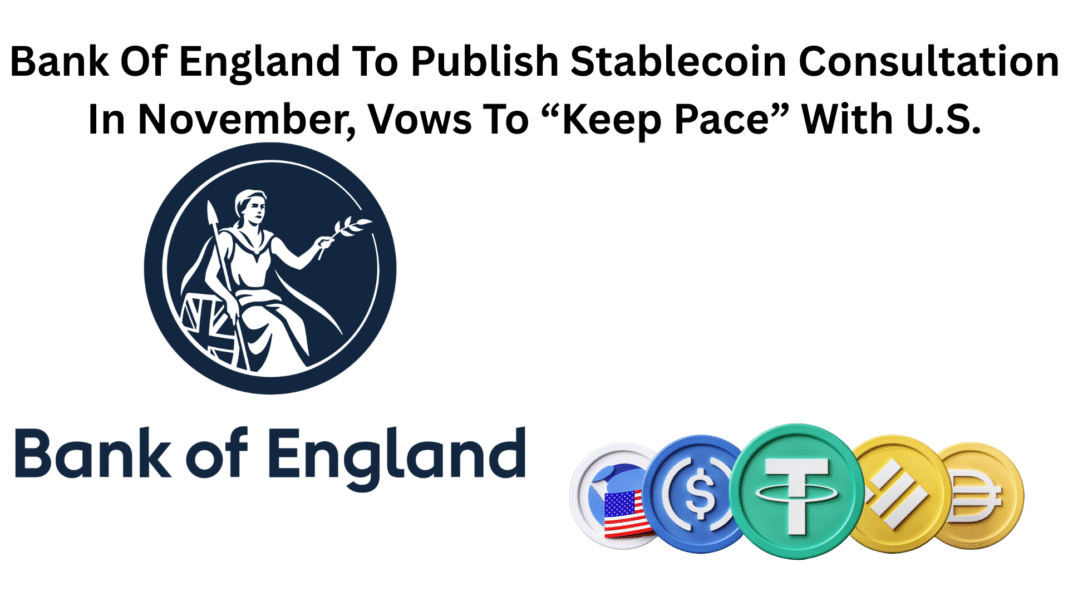The Bank of England (BoE) is getting ready to unveil its much-anticipated stablecoin regulatory framework in an effort to keep up with US advancements in digital asset regulation, according to Bloomberg reports,
Deputy Governor Sarah Breeden told Bloomberg that the new system will take effect “just as quickly as the U.S,” rejecting claims that the UK is lagging behind the United States. She affirmed that on November 10, the BOE will release its official consultation on stablecoin legislation.
Move from Bank of England
While smaller stablecoins would continue to be governed by the Financial Conduct Authority (FCA) with less stringent regulations, the new regulations will initially target “systemic” stablecoins, which are anticipated to play a major role in payments.
As the usage of tokenised money grows, this dual strategy aims to strike a balance between innovation and financial stability. The BOE’s plan would impose temporary limitations on stablecoin holdings of up to £10 million for enterprises and £20,000 ($26,000) for individuals.
Breeden clarified that the tighter restrictions are a reflection of the UK’s bank-dependent mortgage industry, which may be at risk if deposits quickly move to stablecoins. Breeden stated, “Our goal is to ensure that our regime is up and running as quickly as the U.S.”
The need for regulations
The action was taken in response to mounting pressure on Britain to maintain its competitiveness in the race to regulate digital assets.
The government declared last month that it will choose a “digital markets champion” to oversee blockchain modernisation initiatives in wholesale finance.
In the meantime, the FCA removed its four-year restriction on cryptocurrency exchange-traded notes (ETNs), making these instruments more accessible to non-professional investors.
Other developments
Since declaring its intention to put stringent restrictions on the quantity of systemic stablecoins that an individual might own in the United Kingdom, the Bank of England has been the target of a line of criticism from the payments and cryptocurrency industry associations.
According to the BoE’s plan, enterprises may only possess up to £10 million in systemic stablecoins, while individuals could only own between £10,000 and £20,000 ($13,500 and $27,000).
Additionally, by 2026, the Bank of England (BoE) is considering new regulations that would drastically reduce the amount of cryptocurrency exposure that UK institutions might have.
The idea is a component of the UK’s larger drive to create a more regulated framework for cryptocurrency regulation and is in line with international efforts to limit the financial risks associated with digital assets.
Also Read: Bank Of England To Grant Exemptions For Some Firms Under Proposed Stablecoin Holding Limits


